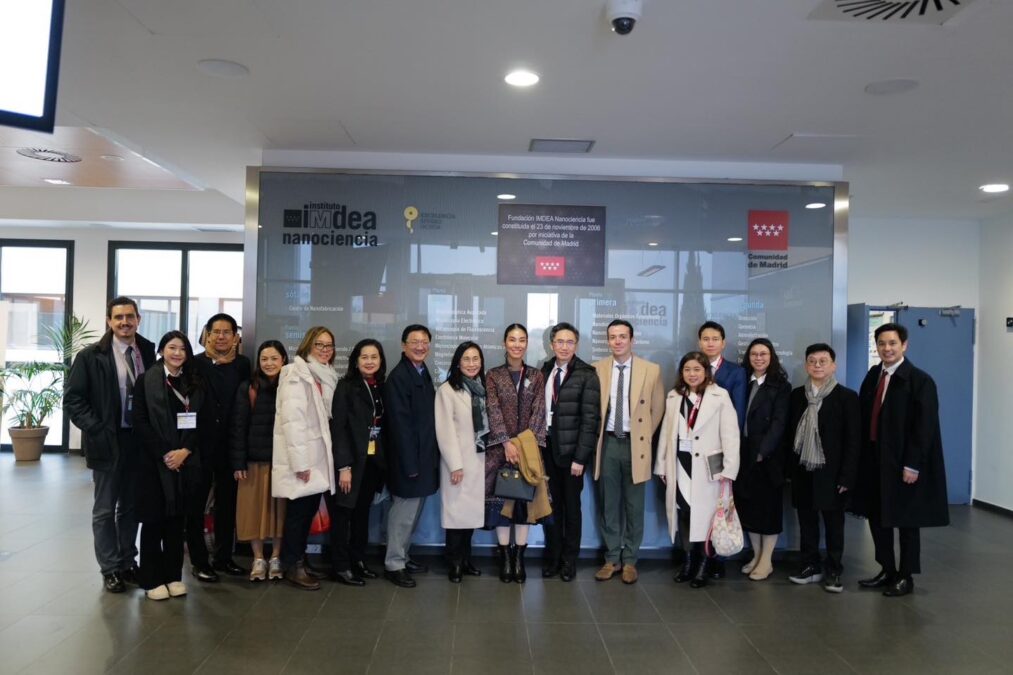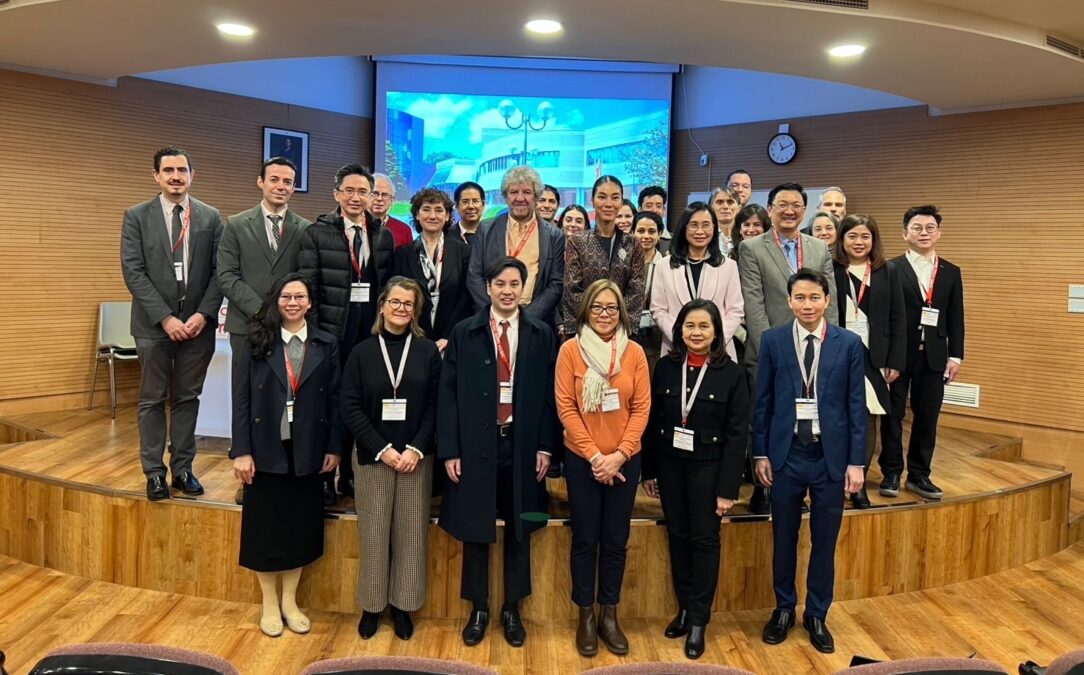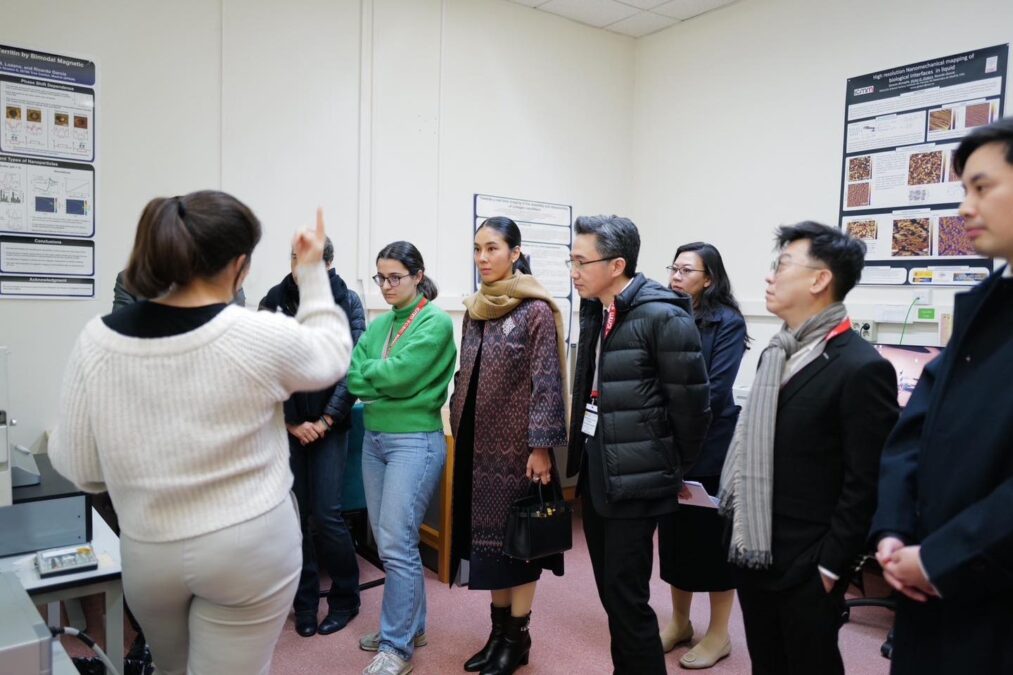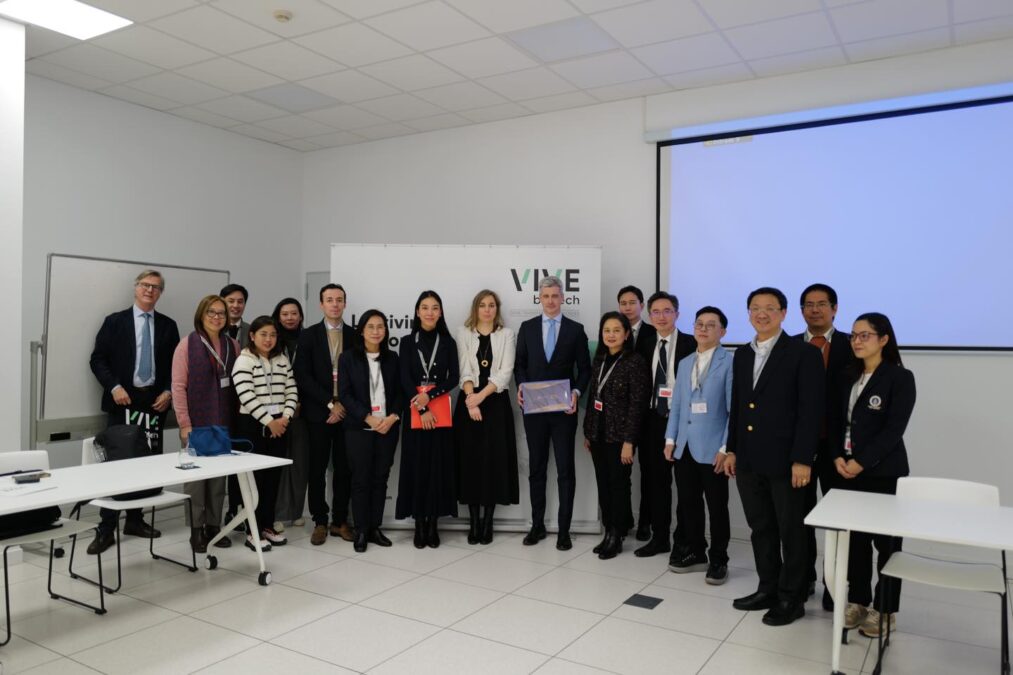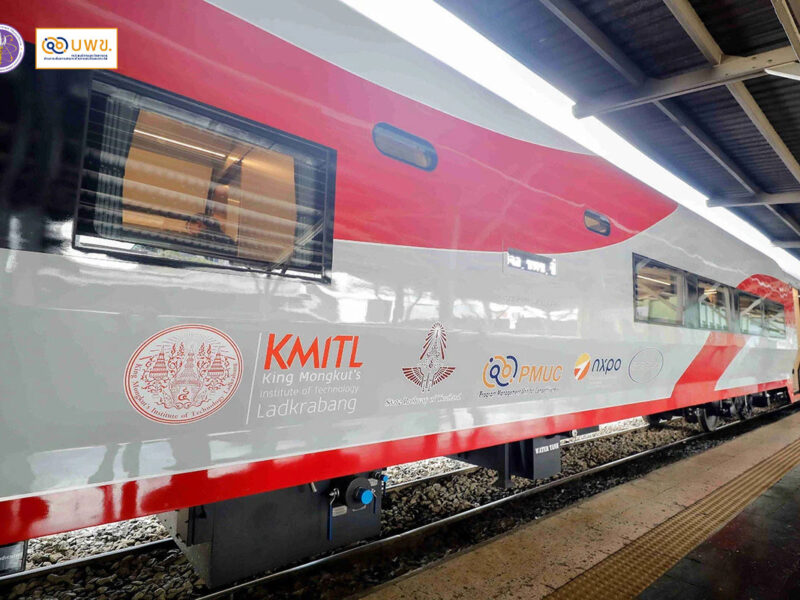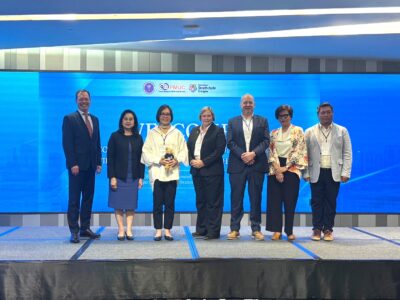
Ministry of Higher Education, Science, Research and Innovation, through the Program Management Unit for Competitiveness (PMUC), in collaboration with Mahidol University, visited Spanish research and innovation institutions in the fields of biophysics, materials science and medicine, focusing on Nanomedicine and ATMPs, and engaged in research collaboration in Spain.
From January 29 to February 3, 2025, executives from the Ministry of Higher Education, Science, Research and Innovation, led by Ms. Suchada Tansap, Secretary to the Minister of Higher Education, Science, Research and Innovation, Dr. Chutima Eamchotchawalit, Chairperson of the Executive Board, and Associate Professor Dr. Thongchai Suwansichon, Director of PMUC, along with executives from Mahidol University, led by Associate Professor Dr. Yoschanan Wongsawat, Vice President for Research, together with Professor Sansanee Chaiyaroj, Advisor to the President for Research, and a team of faculty members and researchers from Mahidol University, visited research and innovation institutions in the fields of biophysics, materials science and medicine, focusing on Nanomedicine and ATMPs, and engaged in research collaboration negotiations in Spain. The visit included tours of laboratories and discussions to develop collaborative research projects with leading researchers from various public and private institutions, such as the Material Science Institute of Madrid (ICMM-CSIC), IMDEA Nanociencia Institute, VIVE BIOTECH, CIC BIOMAGUNE, the Institute for Bioengineering of Catalonia, and Vall D’Hebron Hospital.
Also in this visit, a discussion was held regarding future cooperation with CDTI-E.P.E, which is a partner agency of PMUC in providing matching fund for projects involving collaboration between Spain and Thailand. CDTI is an agency that provides funding to the private sector for research collaborations with key government sectors in Spain. CDTI is a government agency under the Ministry of Science of Spain, responsible for promoting innovation and technological development of Spanish companies by supporting research and development projects at both national and international levels.
Spain has invested as much as 2.36 billion Euros in medical research through various funds, which is a key strategy for the development of medicine and healthcare, and demonstrates a continuous growth trend. The development of Nanomedicine and ATMP technology in collaboration with Spain will result in Thailand having advanced medical technology and decreasing the import of expensive cancer drugs from abroad. Collaboration with Spain, using Thailand as a pharmaceutical manufacturing base, may help reduce drug imports to some extent.
For Spain’s health market, it is not only about medical matters, but also the global dietary supplement industry has been continuously growing and is expected to increase to 269.5 billion US dollars in 2030, with an average annual growth rate of around 8.5%. For Spain, which is a European country, the trend aligns with the growth of the global dietary supplement market, especially after the COVID-19 pandemic, which has made people pay more attention to their health, resulting in increased demand for dietary supplements. Given the growth trend of the dietary supplement market in Europe, it is expected that this industry in Spain will continue to expand in the future. Therefore, it is advantageous to develop nanotechnology in Thailand to cover both dietary supplements and medical applications.

